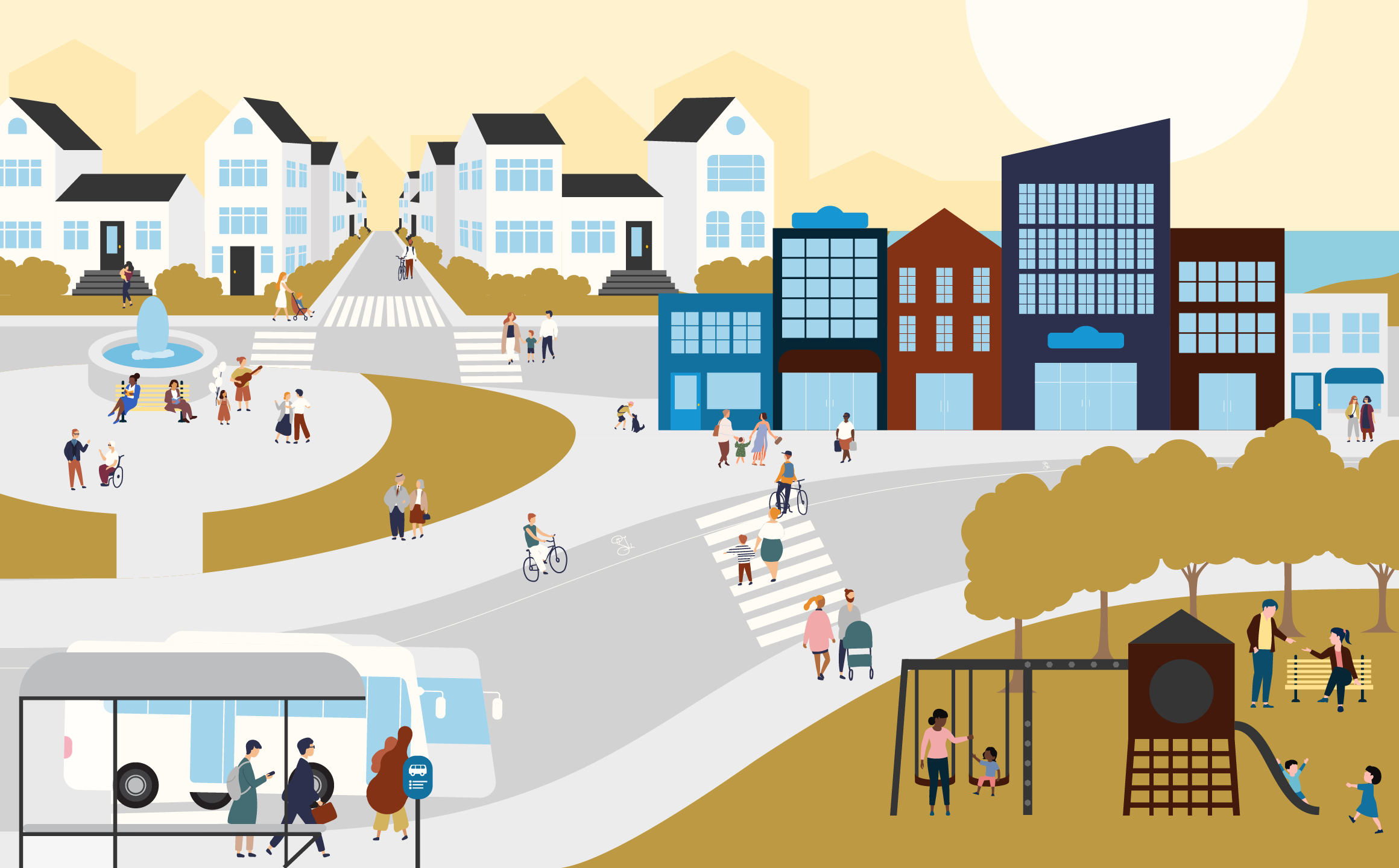
Alysheia Shaw-Dansby
Getting from one place to another in a community might seem straightforward, but for many residents, transportation is not always easy. Just the journey from the door to the local bus or train stop can be long and can expose them to dangerous traffic, poor street conditions, crime, and hazardous pollutants from vehicles.
Transportation access and safety have a significant impact on community health. When people do not have access to reliable transportation or when they feel unsafe walking or using public transit to commute to work, travel to medical appointments, or visit friends and family, they endure daily stress and anxieties that can negatively affect their quality of life.
In this second blog post in our Equity in Action series, we explore how six organizations across the country are collecting local data and elevating community voices to address transit access and transportation safety in their communities. Their varied projects, ranging from surveys of residents’ transit experiences to investigations of collision data, highlight the many ways that local data can inform community planning and infrastructure investments.
Three grantees are approaching the challenge through the lens of transportation needs, gaps, and accessibility. They are each elevating community voices by engaging in conversations with residents to identify their transportation needs and discussing potential strategies to improve their transit access. ConnectionHealth is inventorying transportation services in three Birmingham, Alabama, neighborhoods and conducting surveys, interviews, and focus groups with stakeholders and older residents to understand how effective these services are for older adults. In O’ahu, the Hawai’i Appleseed Center for Law and Economic Justice is surveying residents about their transportation habits and needs and showcasing results using StoryMap to inform advocacy for multimodal transportation infrastructure. Pittsburghers for Public Transit is empowering residents of Pittsburgh’s South Hilltop region to collect data on transit needs in their community and propose solutions that are enhanced by their lived experience.
Another three grantees are focusing on transportation safety. Chinese for Affirmative Action and the Los Angeles Neighborhood Initiative (LANI) are both investigating noncarceral approaches to crime and traffic enforcement in efforts to improve safety. In the case of Chinese for Affirmative Action, this will come in the form of safety audits of transit lines in San Francisco’s Chinatown, where transit users will observe and collect data to document factors that influence concerns like harassment and abuse on transit. LANI, on the other hand, is producing a survey and focus group supplemented by traffic collision data to suggest street and pedestrian infrastructure investments that would reduce police-driven traffic enforcement and improve nearby street safety. In Miami, Healthy Little Havana is organizing qualitative data activities, including a community data walk, to document safety challenges pedestrians face, such as inadequate crosswalks, poor lighting, high-speed traffic, and increased use of electric scooters and bicycles.
What These Communities Can Teach Us
These projects remind us that there is no single or easy solution for making people’s travels throughout their community safer, but there are several ways that community leaders and stakeholders can seek investments and policy interventions to make residents’ experiences of moving within their communities easier. The projects also highlight how understanding the street conditions and mobility experiences of community members is a crucial step to understanding which of these improvements can and should be made.
About the Initiative
The Local Data for Equitable Communities grant program, funded by the Robert Wood Johnson Foundation, is supporting 30 grantee organizations across the country to use local data and community experience to improve the physical, social, or economic conditions specific to those places. These projects span rural and urban areas, engage a broad range of community members, and address issues including food access, housing and land use, climate, sustainability, and justice.
Learn more about all the Local Data for Equitable Communities grantees.
Stay Connected
Sign up for the Housing and Communities Division newsletter to receive updates on this program and other work at the intersection of food access and community development. Share this with a colleague who works in or is interested in this space.
Our next blog post is this series will share grantee projects focused on housing. Stay tuned.
Let’s help communities build more secure, hopeful futures.
Today’s complex challenges demand smarter solutions. Urban brings decades of expertise to understanding the forces shaping people’s lives and the systems that support them. With rigorous analysis and hands-on guidance, we help leaders across the country design, test, and scale solutions that build pathways for greater opportunity.
Your support makes this possible.